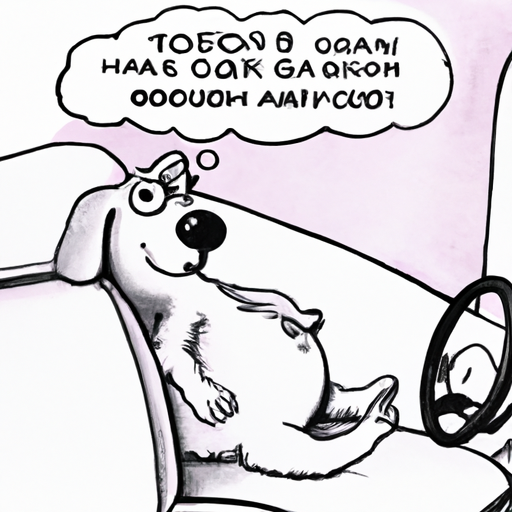Understanding Canine Motion Sickness
Just like humans, dogs can suffer from motion sickness while traveling in a vehicle. This can be due to the motion of the car, lack of visual reference points, or even stress and anxiety related to travel. It’s not uncommon for your canine companion to become nauseous, vomit, or show signs of distress.
The Science Behind the Sickness
The cause of your dog’s car sickness can mostly be attributed to the inner ear, where balance and equilibrium are regulated. When the motion of the car doesn’t match what the dog’s eyes are seeing, it can lead to feelings of nausea and sickness.
This is especially common in puppies and younger dogs because their ear structures are not fully developed. As they grow and become accustomed to car travel, they may outgrow these symptoms.
Symptoms of Carsickness in Dogs
Your furry friend can’t tell you outright that they’re feeling unwell, but they will show certain signs. Here are some symptoms to look out for:
- Excessive yawning or panting
- Whining or crying
- Lethargy
- Drooling or vomiting
- Anxiety or restlessness
Preventing and Treating Canine Carsickness
Prevention is always better than cure. Here are some strategies to help your dog cope with car travel:
-
Slow introduction to car travel: Start with short, positive trips to get your dog used to the motion.
-
Opt for a dog car seat or carrier: This can make them feel more secure and help maintain equilibrium.
-
Limit food before travel: A full stomach can make nausea worse.
-
Consult a vet: They can prescribe medication or suggest other treatments.
| Strategy | Description |
|---|---|
| Slow introduction | Start with short trips |
| Dog car seat | Provides security |
| Limit food | Can prevent nausea |
| Vet consultation | Can suggest treatments |
FAQ
Why does my dog get carsick?
The motion of the car can affect your dog’s balance and equilibrium, leading to motion sickness.
Can I prevent my dog from getting carsick?
Yes, by gradually introducing them to car travel, securing them in a car seat, and limiting food before travel.
Should I consult a vet?
Absolutely. A vet can offer valuable advice and prescribe medication if necessary.
Will my dog grow out of carsickness?
Possibly. Puppies and young dogs are more prone to carsickness due to underdeveloped ear structures. As they grow and get used to car travel, it’s likely they’ll grow out of it.



